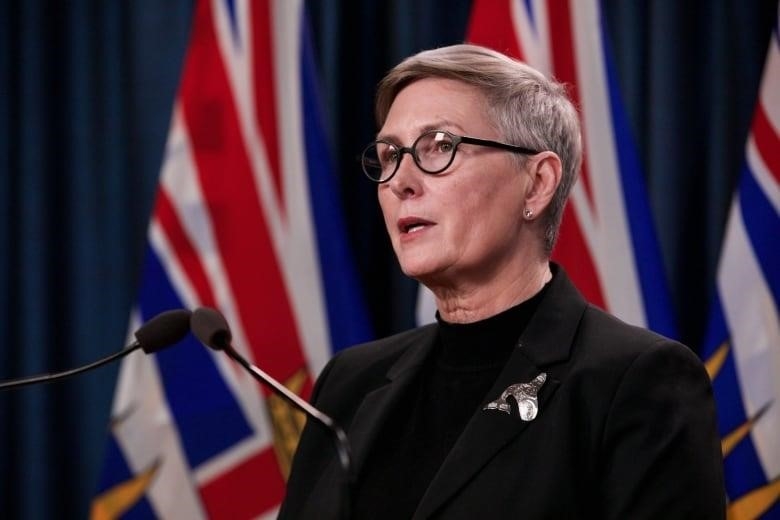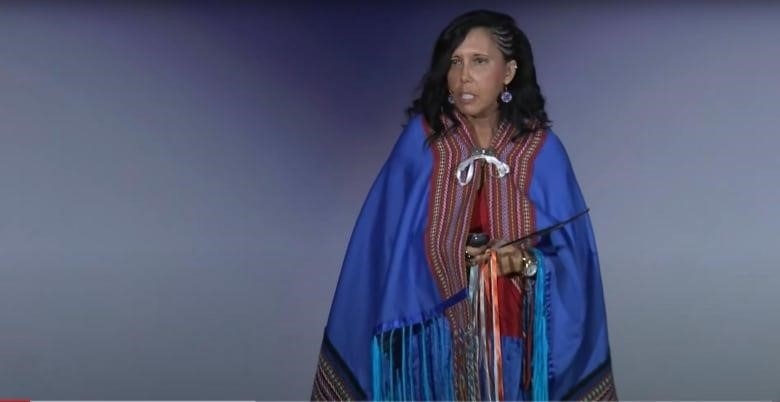
Cree Senator Mary Jane McCallum wants the Senate to look into the “invisible crime” of identity fraud among Indigenous people
Sen. Mary Jane McCallum says that Indigenous identity fraud is a serious crime that hurts Indigenous women but is rarely seen.
The Cree woman from Manitoba wants a Senate committee to look into what’s going on and how bad it is.
In an interview from her office on Parliament Hill, she said, “People don’t really look at identity theft.” “It’s almost like a crime that can’t be seen.”
She also said that it’s another fight that Indigenous women have to fight, and she’s tired of always having to fight.
Her call for a closer look comes after a number of high-profile cases in recent years in which academics and artists who claimed to be Indigenous were shown to be lying.
 Mary Ellen Turpel-Lafond is a lawyer, judge, and advocate for children’s rights in the Canadian government. A recent investigation by CBC News shed light on her questionable claim to be an Indigenous person. (Mike McArthur/CBC)
Mary Ellen Turpel-Lafond is a lawyer, judge, and advocate for children’s rights in the Canadian government. A recent investigation by CBC News shed light on her questionable claim to be an Indigenous person. (Mike McArthur/CBC)Recently, a CBC News investigation showed that Mary Ellen Turpel-Lafond, a respected scholar and longtime advocate for Indigenous rights, has made questionable claims about her Indigenous identity.
A separate investigation by CBC News led to a well-known health researcher, Carrie Bourassa, being put on leave by the University of Saskatchewan because it didn’t seem likely that she was of Métis heritage.
In 2017, an investigation by the Aboriginal Peoples Television Network called into question the author Joseph Boyden’s claims that he was of Indigenous descent.
McCallum said on Thursday that when identity theft happens in a university, it is usually other Indigenous academics, especially women, who have to speak up. Students are also hurt by this, and they often feel angry and violated.
 Carrie Bourassa said during her 2019 TEDx talk in Saskatoon that she is Métis and Anishnaabe and has been hurt by racism. In 2022, CBC News looked into this claim and found that it wasn’t true. (YouTube)
Carrie Bourassa said during her 2019 TEDx talk in Saskatoon that she is Métis and Anishnaabe and has been hurt by racism. In 2022, CBC News looked into this claim and found that it wasn’t true. (YouTube)When she thinks back on her own life, the senator says that she looked up to her father as a role model, and she says that students feel the same way about their teachers.
“Now to find out, ‘Well, they’re not even Indigenous,’ like, what does that do to a person?”
McCallum thinks that not enough Canadians realize how bad it is when people lie about being Indigenous. She says this is made worse by the fact that some people are still fighting for the Indian Act to recognize their identity as Indigenous.
The senator thinks about her own life once more. McCallum says that her 10-month-old grandson will not be given status because her husband is not Indigenous and her daughter was born after 1985.
So she needs to fight about that too.
“It’s at the heart of being a woman to fight for your community and your people,” she said, with tears in her eyes and her voice shaking with emotion.
“It’s so hard to deal with, and it keeps going on.”
McCallum says she doesn’t know why someone would pretend to be from a different family than their own.
And since she went to residential school for 11 years and grew up at a time when many Indigenous people hid who they were, she also wonders when it became okay to be Indigenous.
“There will always be people who try to fill in the gaps and use their indigenousness to gain power.”
